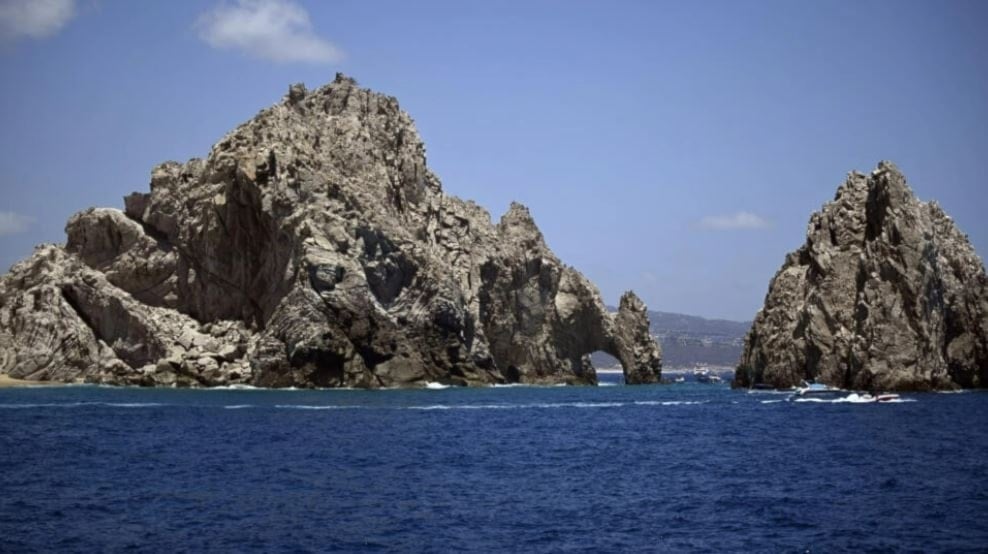UN's Guterres sounds 'global SOS' as Pacific Ocean levels surge
A recent report from the World Meteorological Organization reveals that sea levels have risen by about 15 centimeters in some parts of the Pacific over the past 30 years.
-

View of a rock formation at the Pacific Ocean in Cabo San Lucas, Baja California state, Mexico on August 4, 2023 (AFP)
United Nations Secretary-General Antonio Guterres issued a global climate "SOS" during a Pacific islands summit on Tuesday, revealing research indicating that sea levels in the region are rising significantly faster than the global average.
"I am in Tonga to issue a global SOS -- Save Our Seas -- on rising sea levels. A worldwide catastrophe is putting this Pacific paradise in peril," he warned.
The Pacific islands, though sparsely populated and with minimal heavy industry, contribute less than 0.02% of global emissions annually.
However, these volcanic islands and low-lying coral atolls are situated in a tropical zone increasingly threatened by rising ocean levels.
The World Meteorological Organization has been tracking tide gauges on the Pacific's iconic beaches since the early 1990s.
A recent report from the leading UN climate monitoring body revealed that sea levels have risen by about 15 centimeters in some parts of the Pacific over the past 30 years.
In comparison, the global average rise was 9.4 centimeters, according to the report.
"It is increasingly evident that we are fast running out of time to turn the tide," stressed the forecasting agency's top official Celeste Saulo.
Dive deeper
At certain locations, particularly in Kiribati and the Cook Islands, sea level rise was comparable to or slightly below the global average.
However, in other areas, including the capital cities of Samoa and Fiji, sea levels were rising nearly three times faster.
In Tuvalu, a low-lying Pacific nation, land is so limited that children often play on the tarmac of the international airport as a makeshift playground.
Scientists have cautioned that even under moderate climate scenarios, Tuvalu could be nearly completely submerged within the next 30 years.
"It's disaster after disaster, and we are losing the capacity to rebuild, to withstand another cyclone or another flood," Tuvalu Climate Minister Maina Talia said on the summit's sidelines as quoted by AFP.
"For low-lying island states, it's a matter of survival for us," Talia added.
The challenges faced by Pacific islands have often been neglected due to their isolation and limited economic influence.
However, scientists now view the region as a crucial indicator of climate change, offering early warnings about potential issues that could affect other parts of the world.
"This new report confirms what Pacific leaders have been saying for years," Australian climate researcher Wes Morgan told AFP.
"Climate change is their top security threat. Pacific nations are in a fight for survival, and cutting climate pollution is key to their future," Morgan added.
Why it matters
Encircled by vast expanses of tropical ocean, the South Pacific faces a unique threat from rising sea levels.
According to the United Nations, most residents live within five kilometers of the coast.
Increasing sea levels are consuming limited land and contaminating crucial food and water supplies.
Additionally, warmer ocean temperatures are intensifying natural disasters, and ocean acidification is gradually destroying coral reefs that support essential marine food chains.

 3 Min Read
3 Min Read









